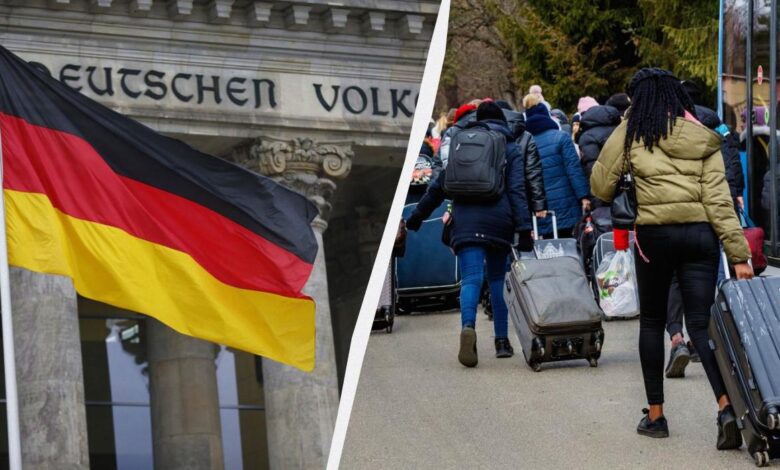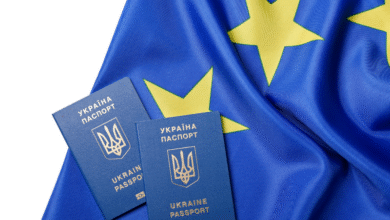Possible changes for Ukrainian refugees in Germany: new political reality and expectations

In Germany, the discussion of possible changes in the rules of stay of Ukrainians who have the status of temporary protection continues. The processes unfolding inside the country are increasingly affecting the subject of migration. This issue has become central to the political agenda, especially against the background of the intensification of right-wing political forces that focus on migration policy. In this context, Ukrainian citizens living in Germany should be ready for changes — first of all, in terms of the social support they receive.
About possible innovations and political attitudes in Germany told Ambassador of Ukraine in Berlin Oleksiy Makeev. According to him, it is primarily about changing the procedure for providing social assistance — both in terms of the amount of payments and in the mechanisms for regulating this support. In Germany, they are currently preparing to modernize the Bürgergeld system, which is a state aid provided to those who are unemployed or in a difficult situation.
Makeev noted that today there are more than a million Ukrainian citizens in Germany who have received temporary protection. Some of them continue to use social support, but many have already integrated into German society, mastered the language and entered the labor market. According to the ambassador, three and a half years have passed since the beginning of the full-scale invasion, and during that time many qualitative changes have taken place: children have adapted to the school system, adults have started working, and some have acquired new professional skills.
As Makeev emphasized, Germany is interested in Ukrainians becoming part of its labor market — both qualified and unqualified personnel. At the same time, the country strives to ensure that people who receive assistance do not remain aloof from social life, but are actively involved in it.
At the same time, the German side understands that Ukraine needs its citizens to rebuild the country after the war. That is why the German federal government supports professional retraining and education programs for migrants who remain inside Ukraine. Makeev emphasized that the Germans are not trying to keep all Ukrainians, but they are not putting pressure on those who do not want to integrate. Germany’s approach is based on respect for the sovereign decision of the people and the desire of the Ukrainian state to return its citizens home.
According to the diplomat, in Germany they understand that specialists who have undergone adaptation, gained knowledge and experience in Germany, could with considerable benefit return to Ukraine and participate in its restoration. This is also in the interests of German business: many companies consider Ukraine as a destination for investment and participation in post-war projects, and they need people who have knowledge and experience working in both Germany and Ukraine.
The ambassador stressed that the German government does not set itself the task of integrating everyone or turning back those who have not adapted. It’s about individual stories and everyone’s choices. At the same time, the discussion of the future of Ukrainians in Germany continues — it is significantly fueled by the internal German political controversy, in which right-wing forces are increasingly participating. This means that changes should be expected, and the first of them, most likely, will concern social benefits.
Makeev drew attention to the fact that changes may occur both in the amount of aid and in the very order of its provision. It is about the modernization of the Bürgergeld model — financial support for those who are unemployed or in need of assistance. Currently, the integration of Ukrainian citizens into the labor market is really taking place in Germany. The number of those who have already found work, although they arrived in the country as a person in need of protection, is increasing.
He recalled that three and a half years have passed since the full-scale invasion, during which time circumstances have changed, children who have learned German have adapted, and adults have gained experience in new areas. Society in Germany generally demonstrates readiness for the integration of Ukrainians, but at the same time increasingly emphasizes the need to involve those who are still receiving assistance to work. At the same time, Ukraine is interested in ensuring that citizens currently in Germany do not lose touch with their homeland. We are talking about a large number of people – only according to the official data of the federal government, more than 1 million 216 thousand Ukrainians are in Germany with the status of temporary protection.
The German government realizes that without the return of a part of its citizens to Ukraine, the reconstruction of the country will be impossible. That is why, according to Makeyev, Germany supported the idea of creating “hubs of unity” aimed at maintaining the connection between the Ukrainian diaspora and the state. He emphasized that the Germans are interested in Ukrainians replenishing their labor market, but at the same time they understand well that the Ukrainian state needs its citizens. That is why the Federal Republic of Germany also allocates funds for training and retraining programs for Ukrainians who remain inside the country. In Berlin, they understand that the reconstruction of Ukraine is a manual process, and therefore it needs as many motivated and trained specialists as possible.
The ambassador emphasized that there is no desire to integrate all Ukrainians or, on the contrary, to return those who did not integrate. Germany’s position is flexible and realistic. In Berlin, they are sympathetic to the fact that some Ukrainians who have already found work in Germany will be able to return home with experience, knowledge of the language and adaptation, which will be useful during the restoration of the state. This corresponds to the interests not only of Ukraine, but also of German companies that seek to join future projects in our country.





